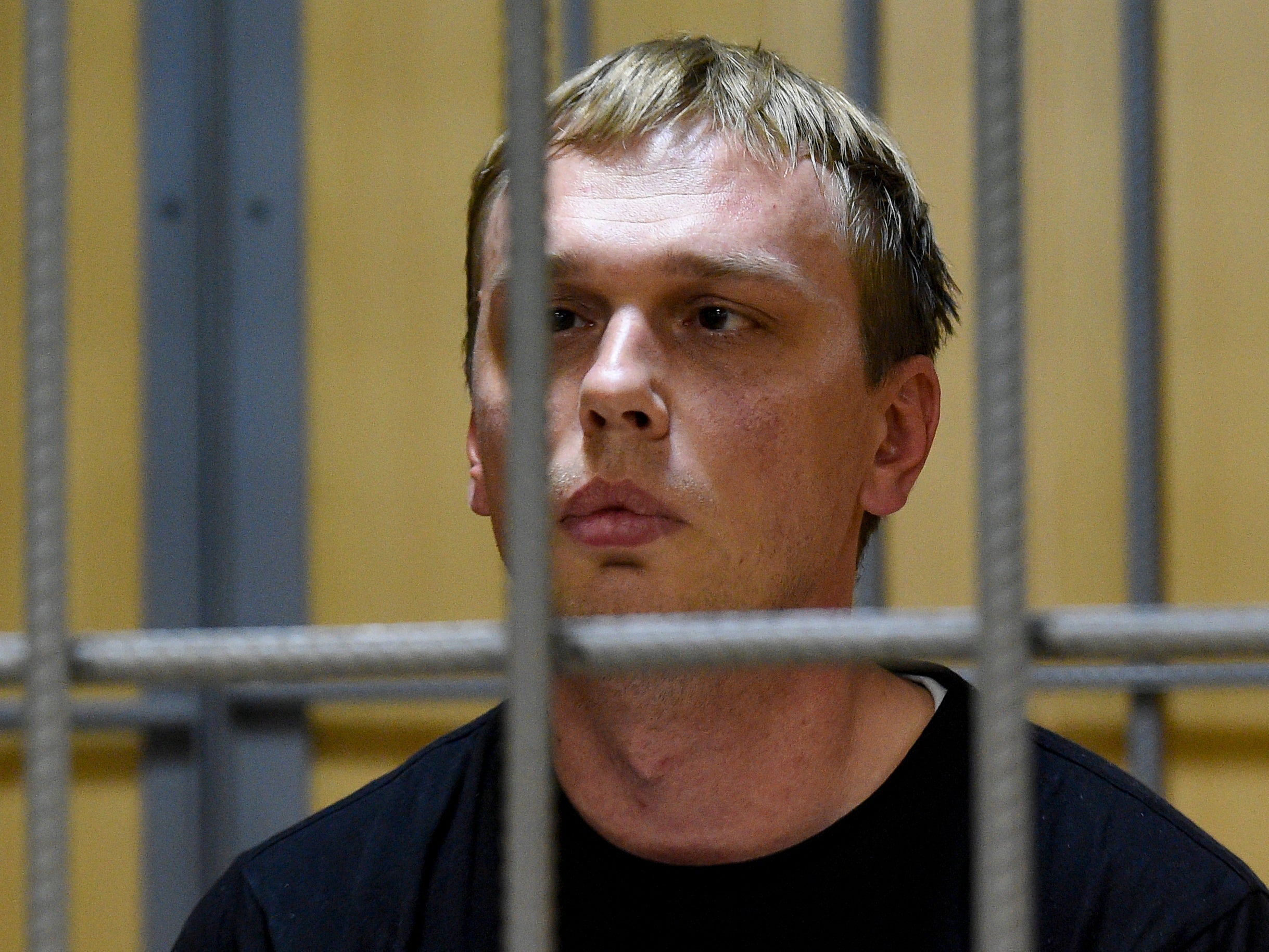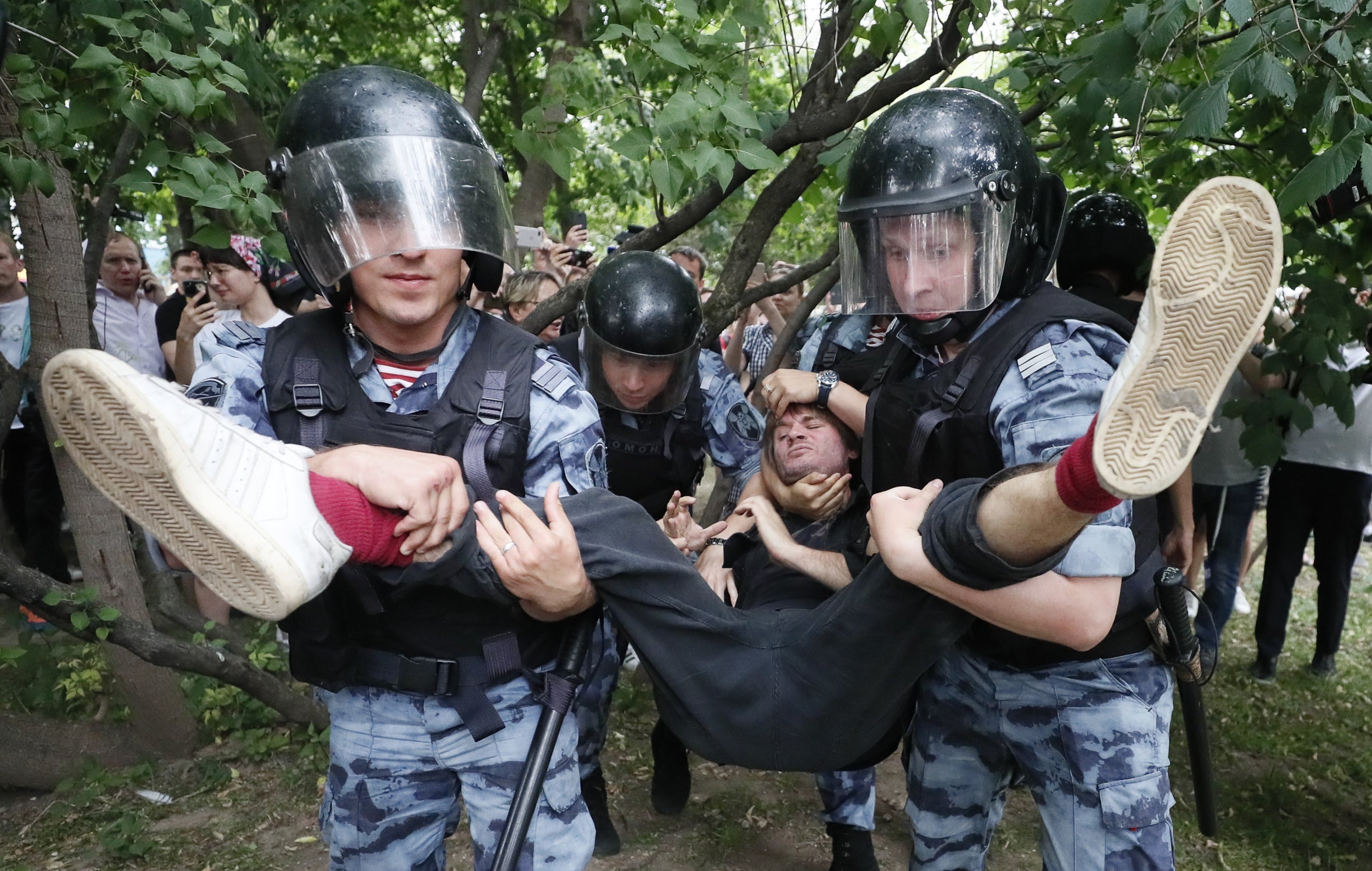Spooks, skeletons and boys from Stavropol: The story that made journalist Ivan Golunov a target for the FSB
Sensitive investigation shows links between top security officers and mafia groups controlling Russia’s funeral industry

When news of the arrest of reporter Ivan Golunov broke late in the morning of 7 June, his editors at Meduza said they had no doubts it was connected to a secret investigation he was working on at the time.
Today, The Independent can reveal the contents of that investigation and the murky underworld it exposed. It is a trail scattered with big bucks, blood and bones. It links top officers in the FSB, Russia’s security agency, to dodgy provincial banking elites and mafia groups controlling the funeral industry.
On 9 June, three days after his arrest, Golunov was charged with serious drugs offences, and the wheels of Russian justice – which returns less than 0.25 per cent not-guilty verdicts – clicked into motion. The drug-selling charges that Golunov was accused of usually end in long-term prison sentences. But, remarkably, public outcry forced the the intervention of key Kremlin officials, his release, and the dismissal of two police generals. On Saturday, Vladimir Putin described the affair as “not only injustice but lawlessness” that demanded answers.
Yet the men who likely ordered his arrest – the FSB officers named in the investigation – have so far escaped public sanction.
Golunov’s report, which Meduza is publishing concurrently with this article, delves into the underbelly of Moscow’s shady funeral services industry. It shows how a group of bankers from Stavropol, southern Russia, came to control part of that market in 2015-16. And it outlines how forces close to the head of FSB’s Moscow regional directorate helped them achieve that takeover.
The funeral services industry in Russia is no place for the honest – living or dead. Tied together by corruption, red tape and a dwindling supply of plots, the black market alone is said to generate between 12 and 14 billion roubles every year (£150m-175m).
When things don’t quite work out, bodies are thrown over cemetery walls and cemetery managers “commit suicide”.
The most notorious episode in the takeover of funeral services industry in Moscow came in 2016, with a mass brawl and shoot-out at the Khovanskoye Cemetery in the southeastern suburbs. Three lives were lost that day.
On appearances, the fighting was between hired thugs on motorcycles and the Tajik cemetery labourers who constitute a large part of the labour force in Moscow’s cemeteries. But in reality, it was a clash between old and new clans.
The former group was made up of former military men who had built a funeral services empire in the Khimki suburbs in the 2000s. The Khimki group were known for their ruthlessness and a business approach that often left opponents crippled or dead. But manoeuvres in 2015 saw them lose their foothold in the industry. The new guys in town were the businessmen-bankers from Stavropol, who had asserted control with the backing of high-ranking officers in the FSB’s Moscow directorate.
The Golunov investigation joins the dots between Alexey Dorofeyev, 58, the FSB general in charge of the Moscow Directorate, and the Stavropol circle. Key figures in the chain, the investigation says, included FSB officer Marat Medoev and Artyom Ekimov, described respectively by a security agency source as “Dorofeyev’s right-hand man” and “Dorofeyev’s man.”
The same source portrays Dorofeyev, 58, as a “demigod ... a lieutenant general with an office and a sunroom”.

Golunov, who says he received several veiled threats from his sources, had been putting the final touches to the year-long investigation at the time of his arrest. When news broke, a group of Russia’s top investigative journalists vowed to work together to finish his investigation. They stayed on to complete lines of enquiry and fact check after the drugs charges were dropped and Golunov was released.
That collective effort was part of an unprecedented demonstration of solidarity that included Russia’s three most influential broadsheets publishing an identical front page in support of Golunov. In comments given to The Independent, Galina Timchenko, Meduza‘s general director, said the support had come as the result of a number of factors: Golunov’s unassuming nature, his unblemished reputation, and obvious excesses committed by police.
It is probable the officers who ordered his arrest were unaware of Golunov’s profile and the strength of his networks.
Proekt, an investigative outlet with good sources in the administration, has asserted the Kremlin was provoked into action by the prospect of mass protests. But it was anger with the officials in charge of the investigation, who appear to have misled them on several occasions, that compelled senior figures such as chief of staff Anton Vaino, his deputy Sergei Kirienko, and “propaganda chief” Alexei Gromov to demand Golunov’s release.
“If [the police] had fessed up to the mistake, and talked about ways of limiting the damage for the system, Golunov would still be under arrest,” a source close to the Kremlin told the publication.
Join our commenting forum
Join thought-provoking conversations, follow other Independent readers and see their replies
Comments
Bookmark popover
Removed from bookmarks